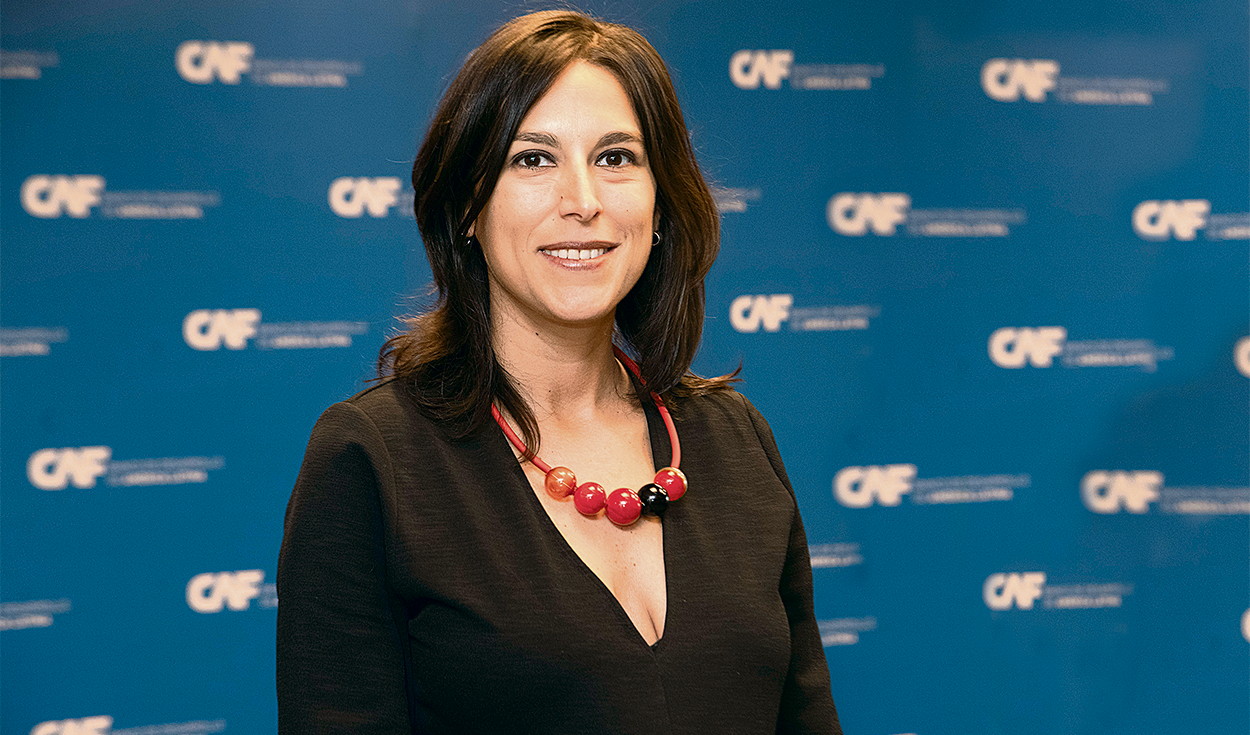
Within the framework of the presentation of the Economy and Development Report (RED22) of CAF, the Knowledge manager of this institution gives her macroeconomic vision of Peru, in a context in which the national GDP registered a fall of 0.24% in the first quarter and several institutions have been lowering their perspectives.
—How does CAF assess Peru’s economic performance?
Peru is one of the countries in the region with the lowest debt levels and this helps its macroeconomic stability and gives us a certain level of stability and credibility abroad to continue borrowing in foreign markets. However, there has been a slowdown in our growth levels. In particular, in the first quarter of 2023 we have had very low growth and private investment slowed down a lot, We at CAF believe that we have hit rock bottom with these levels and it is expected that in the following quarters a growth trajectory will once again be recovered, but not from the levels of previous years, or from pre-pandemic or post-pandemic years, but that we would be around 2% quarterly growth, which would put us on track end of the year 2023 with growth below 2%.
—Is the CAF concerned about this slowdown in the economy?
It will always be a concern that the economy of some of our member countries slows down, but CAF is there to provide support in terms of financing and technical support, and it is precisely at times like this that the support of multilaterals becomes useful. like the CAF.
—They just presented their report on inequalities. Does this low growth help to reduce the gaps?
Obviously, it does not help, the problem we have is financing policies that help to close the inequality; So in that sense, low growth doesn’t help. But I think that despite this limitation, the other important issue to reduce inequality, especially the lack of social mobility, is the issue of spending efficiency and there is no excuse for not doing things because, despite low growth , we can always identify policies that are cost-effective to reduce gaps in educational fields, access to fair employment opportunities and wealth accumulation.
—And in terms of employment opportunities, how much does this meager GDP affect?
Growth, which hopefully comes tied to higher levels of productivity, is essential to generate more formal jobs. There is this issue of informality throughout the region, but in Peru it is a little more serious and so it is difficult to think of policies that improve household income without going through a fundamental reform of the labor markets and try to pursue greater formal job creation. For that, private investment is key, not just public investment.
—How do you expect private investment to fare?
It fell a lot in the first quarter, the reduction was 12% and we hope that this has been the floor and that from now on it will recover in the following quarters of the year. I do not think it will continue to decrease, we do not have a projection of how much it can reach, but it depends a lot on political stability in the country, which will always have an impact on the conditions under which this investment comes and there is still not much clarity. about it.
—Poverty also increased in 2022.
With the post-pandemic recovery, the informal labor market expanded and poverty also increased. So, we return to the issue of better targeting of spending given an environment of low growth in Peru, what we have to look for and what the Peruvian State is looking to do in numerous post-pandemic recovery initiatives, more on the social side, is to try to focus better, find out who are the most disadvantaged.
—The pension reform is being discussed, what characteristics should it have?
We have to think about more universal social security systems and not only binding for access to formal jobs because in the end when we talk about pensions in Peru we are talking about 20% of the labor force, because the rest do not have a formal job and do not contribute individually to their pension fund. We have to think of a more universal pension system, of accompaniment to citizens in cases of unexpected shocks and of access, regardless of their worker status, to health, education and insurance services.
Source: Larepublica
Alia is a professional author and journalist, working at 247 news agency. She writes on various topics from economy news to general interest pieces, providing readers with relevant and informative content. With years of experience, she brings a unique perspective and in-depth analysis to her work.











